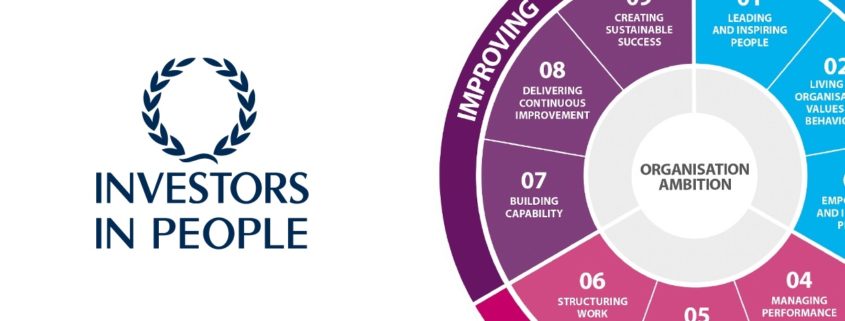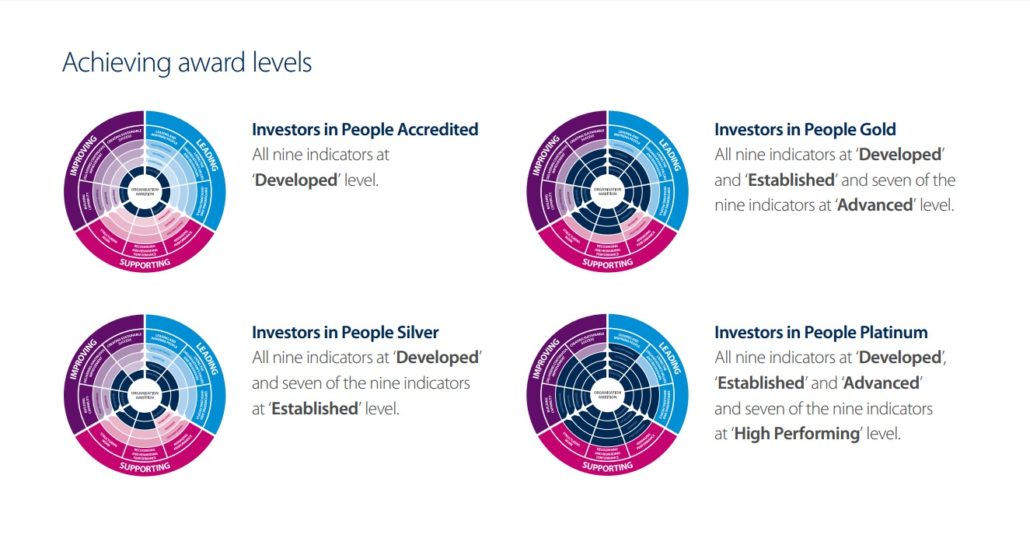The standard defines what it takes to lead, support and manage people for sustained success. Based on 25 years of leading practice, collaboration with over 1000 organisations and management thinkers, the Standard reflects the very latest workplace trends, to help every organisation be the best they can be. Based on a tried and tested framework and a rigorous process of assessment, organisations that meet the Investors in People Standard proudly display their accreditation to the world because they understand that it’s people that make the difference.
LEADING: Creating purpose in a fast changing environment whilst motivating through change have become essential skills for many roles. Outperforming organisations foster leadership skills at every level of the organisation to deliver outstanding results.
SUPPORTING: For many, constant change is now normal. Successful organisations are moving towards flatter structures to enable faster decision-making, customer focus and agility. Reduced overheads, better service for customers and more successful organisations are the benefits of this approach.
IMPROVING: The best organisations are always looking for opportunities to improve by seeking every marginal gain. They know that every small change adds together to enable them to constantly outperform.
The Investors in People Standard is made up of 9 indicators, each sitting under One of three Criteria: Leading Supporting and Improving. Organisations are assessed on how closely they meet these criteria through a performance model of progression. There are four stages of progression: ‘Developed’, ‘Established’, ‘Advanced’ and ‘High Performing’.

Additional levels of accreditation indicate higher performance in people management. Benchmarked against global industry practice, the following criteria must be met, to achieve higher accreditation.
THE BENEFITS OF INVESTORS IN PEOPLE
Considerable value is found in achieving the Investors in People Accreditation, most notably:
- A greater understanding of your organisation’s strengths and development challenges in terms of the managing of its employees.
- The ability to benchmark against other organisations.
- It can be achieved by organisations of any type or size.
- Brings clarification and focus upon the activities that are important within an organisation.
- Improves morale and employee satisfaction leading to a more committed workforce.
- When carried out successfully, it can be a marketable achievement.



